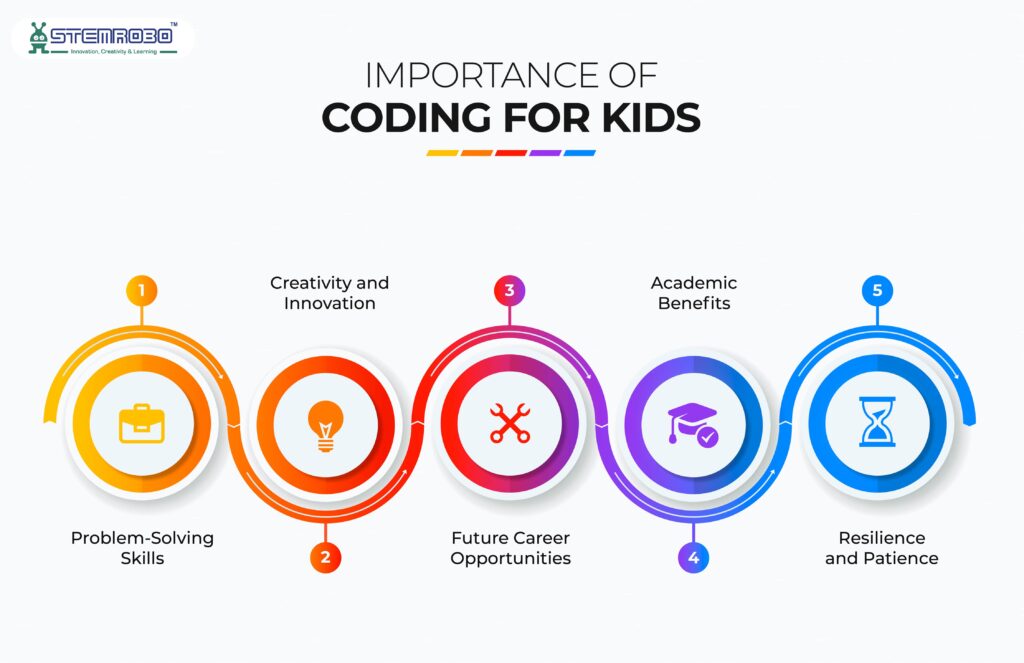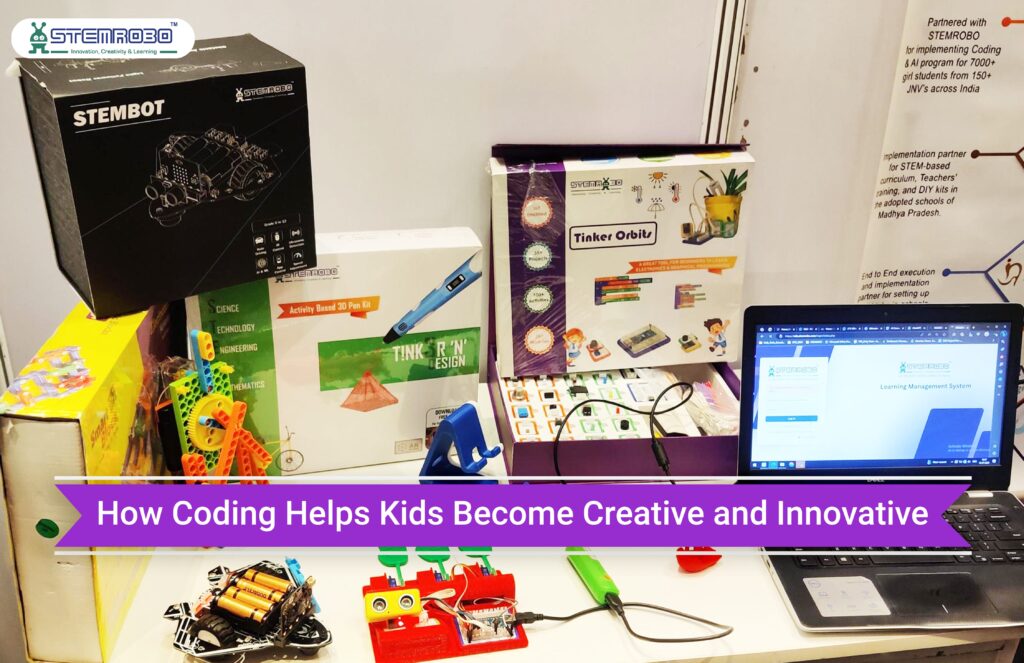Coding involves instructing a computer on what it should do that it can understand and execute. Programs languages are used to guide humans on how to make apps, games, websites, and much more. Think of the universal language of the future that is going to be written and the interface through which we will interact with and use technology. Coding for kids is similar to puzzle creation—they get the things of the sheer size of the right amount of code to get a quality picture across to the master in the future.
Why is Coding Important for Kids?
In the digital era, we are faced with digital trends that require a highly-technical workforce that can plunge into coding. Computer programming class for kids can be a game changer in kids education. Here are a few compelling reasons why coding is important for kids:
Problem-Solving Skills:
- Reasoned thinking: So that kids achieve their coding goals, there are strategies to which they must conform. They learn to think logically and reasonably through this process. Kids can be involved in video game designing for kids classes so that they can gain interest in coding
Decomposition: Complicated programs are broken down into small workable pieces by programmers. Children with problem-solving skills can solve real-life problems better than those who lack them. It is an important life skill learned to solve small and simple challenges before moving on to bigger challenges.
- Debugging: Coding involves debugging or troubleshooting as it is commonly called. By understanding conflicts, why they happen and how to resolve them, children’s problem solving abilities increase.
- Creativity and Innovation:
- Bringing ideas to life: Children can realize their visions with code. They can do this through developing websites, applications and games that resonate with their interests and passions.
- New Thinking: Coding fosters creative thinking among kids. It brings about new solutions to problems and tests business models. This is necessary in a world where innovation and improvement are constantly demanded.
- Amplifying creativity: Kids can speak out through coding using very many different ways such as creating apps of assistance, awesome websites, playful games etcetera. Building confidence in children’s skills is one of the ways this may be achieved when it comes to teaching coding for kids.

- Future Career Opportunities:
- Skills Required: With technology becoming more sophisticated, the demand for computer skills in the industry is also increasing. Working on software development, data analytics and cyber security among many other jobs entails coding skills.
- Early childhood engagement: Exposing children to coding at an early age can ignite a passion that will lead to being contented with technology. By the time they are ready for employment, they will be proficient in coding and thus ready for the future job market.
- Versatility: Coding is not limited to traditional technical skills only. Besides this it is a versatile skill meaning that even healthcare providers, financial institutions and entertainment firms require knowledge of programming note that this kind of skill remains valuable today.
- Academic Benefits:
- Math Skills: Programming involves working with algorithms, patterns, and logic which are all basic math concepts. Such activities enhance the child’s mathematical reasoning and problem solving skills.
- Writing abilities: Computer coding that incorporate language and preciseness could aid in perfecting children’s writing abilities. By this means they develop the skill of expressing their thoughts clearly and briefly through other subjects at school.
- Kids who code, learn very well to pay attention to details. It is possible for software to crash due to a mistake in a single line of code. Success in education and in other areas of life demands carefulness on small things.
- Resilience and Patience:
- Trial and error: Coding for kids, let them know that making mistakes is normal and failure is a necessary part of growing up. Through this experience, children become more resilient and are motivated to keep trying until they achieve it.
- Patience: Completing a coding project takes patience. Young people develop perseverance from hard work and can stick with it till the end.
- Children with problem-solving tendencies benefit from repetition. Children who are learning to break the rules learn how to tackle obstacles with a positive attitude, confident in their ability and will to overcome them.
In What Age Should Kids Start Learning Coding?
While there is no set age at which children should begin learning how to code, it can be beneficial to introduce the basics as early as age 5-7. Young people of this age pick things up quickly and are naturally curious. Younger minds can benefit from interactive and coding courses for kids that simplify complex legal issues.
As children grow older, more structured cueing sessions can be introduced. Ten- to twelve-year-olds can begin learning complex programming languages and performing complex tasks. Experiential Learning Course for kids is a secret to start with fun and developmentally appropriate activities that build their understanding and confidence in coding.
How Coding Helps Kids Become Creative and Innovative

Coding is an effective way to encourage innovation and express creativity. Here’s how coding for kids helps them develop this important skill.
- Bringing ideas to life: Through coding, kids can turn their creative ideas into real projects. The options for creating new games, websites, or apps are limitless. This work encourages them to explore their interests and think critically.
- Encourages experimentation: Teaching children how to make rules pushes them to try new ideas. They realize that making mistakes can lead to new discoveries, and that failure is an important part of learning. This kind of experimental thinking is essential to innovation. Kids Experiential Learning Classes make them problem solvers
- Writing problem-solving exercises can enhance thinking skills. Young people are understanding the concepts like aesthetics, functionality and user experience. This holistic approach encourages design thinking, an attitude that benefits all creative endeavors.
- At many coding levels, collaboration and communication are important. Children pick up effective communication, teamwork and idea sharing skills. This information is crucial for innovative thinking and creative problem solving.
- Building confidence: Kids gain a sense of accomplishment and confidence when completing coding challenges. Their confidence drives them to do strong things and pushes their creative limits.
Coding for kids and STEM education for kids is an investment in more than just their future career; It’s an investment to give them the tools and mindset they need to succeed in an increasingly digital environment. Coding promotes innovation, creativity, and problem-solving skills. Kids can explore technology in fun ways, sharpen their critical thinking skills and lay the foundation for lifelong learning.
Coding for kids slowly starts to build their coding skills through play and exploration at a young age, maybe 5-7 years old. As children grow older, they take on more complex tasks to improve their organizational understanding.




